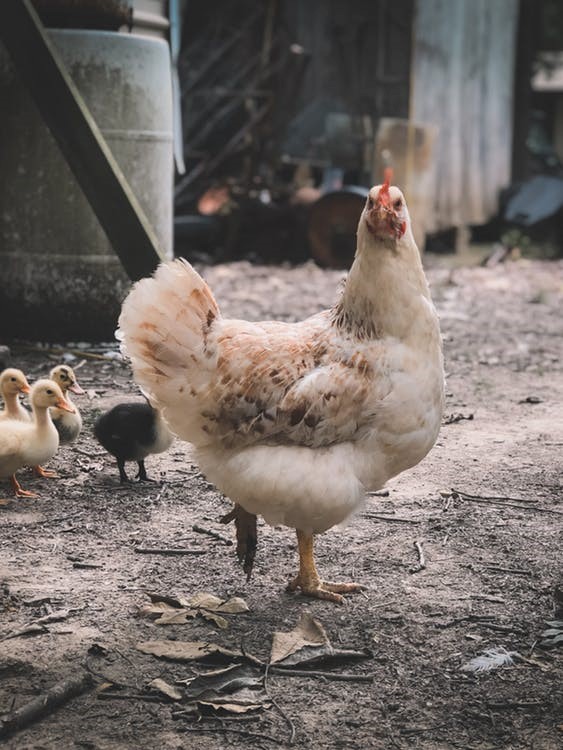This story is reprinted from the Global Water, Sanitation & Hygiene news page. It features research from an interdisciplinary team which includes CCEE Assistant Professor Dr. Angela Harris.

Drs. Ayse Ercumen (Assistant Professor of Forestry and Environmental Resources, lead author), Angela Harris (Assistant Professor of Civil, Construction, and Environmental Engineering), and Raymond Guiteras (Assistant Professor of Agricultural and Resource Economics) recently collaborated with the Water Trust to understand the trade-offs between raising chickens and disease risk. Animal ownership in low-income countries can be a double-edged sword. On the one side, animals can provide income for families along with healthy and nutritious foods. On the other side, animals can harbor zoonotic diseases, which in turn affect human health. Gaining an understanding on the contexts for these interactions can lead to targeted intervention practices.
The Water Trust is a non-profit that works closely with rural Ugandan communities and is the perfect partner for this study. Not only does it provide infrastructure for water, sanitation, and hygiene, it also implements programs to encourage behavior change. The non-profit employs evidence-based interventions, which require robust data collection for monitoring and evaluation. In 2018, the Water Trust established a dataset of over 1000 households in over 22 villages across the Western Region of Uganda. In their surveys, they collected a range of information including animal ownership, ages of household members, and illness symptoms within a 2-week period.
With interdisciplinary expertise in epidemiology, microbial source tracking, and statistical analysis, the NC State team published findings from the data set showing households that keep high numbers of poultry had an increased prevalence of children under five years old with diarrhea during the 2-week study period (link). While it is not exactly known why this is the case, there are some hypotheses: households often keep poultry inside the house at night to prevent theft and leave birds free to explore the surrounding areas in daytime. As birds move in and out of the household, they track contaminants and leave fecal waste where children play, crawl and sleep.
The initial results of this study already spurred action. The Water Trust gained funding from USAID to study how to manage poultry safely. Drs. Ercumen and Harris will lead a randomized control trial to evaluate the effectiveness of these practices across 50 different communities in western Uganda. Dr. Ecumen said, “We’ll be able to see on the ground what is transmitted via chickens and see how our proposed interventions impact human health”.
Ercumen A, Prottas C, Harris A, Diogaurdi A, Dowd G, and Guiteras R, 2020. Poultry Ownership Associated with Increased Risk of Child Diarrhea: Cross-Sectional Evidence from Uganda. The American Journal of Tropical Medicine and Hygiene, 102: 526 – 533. DOI: https://doi.org/10.4269/ajtmh.19-0012
